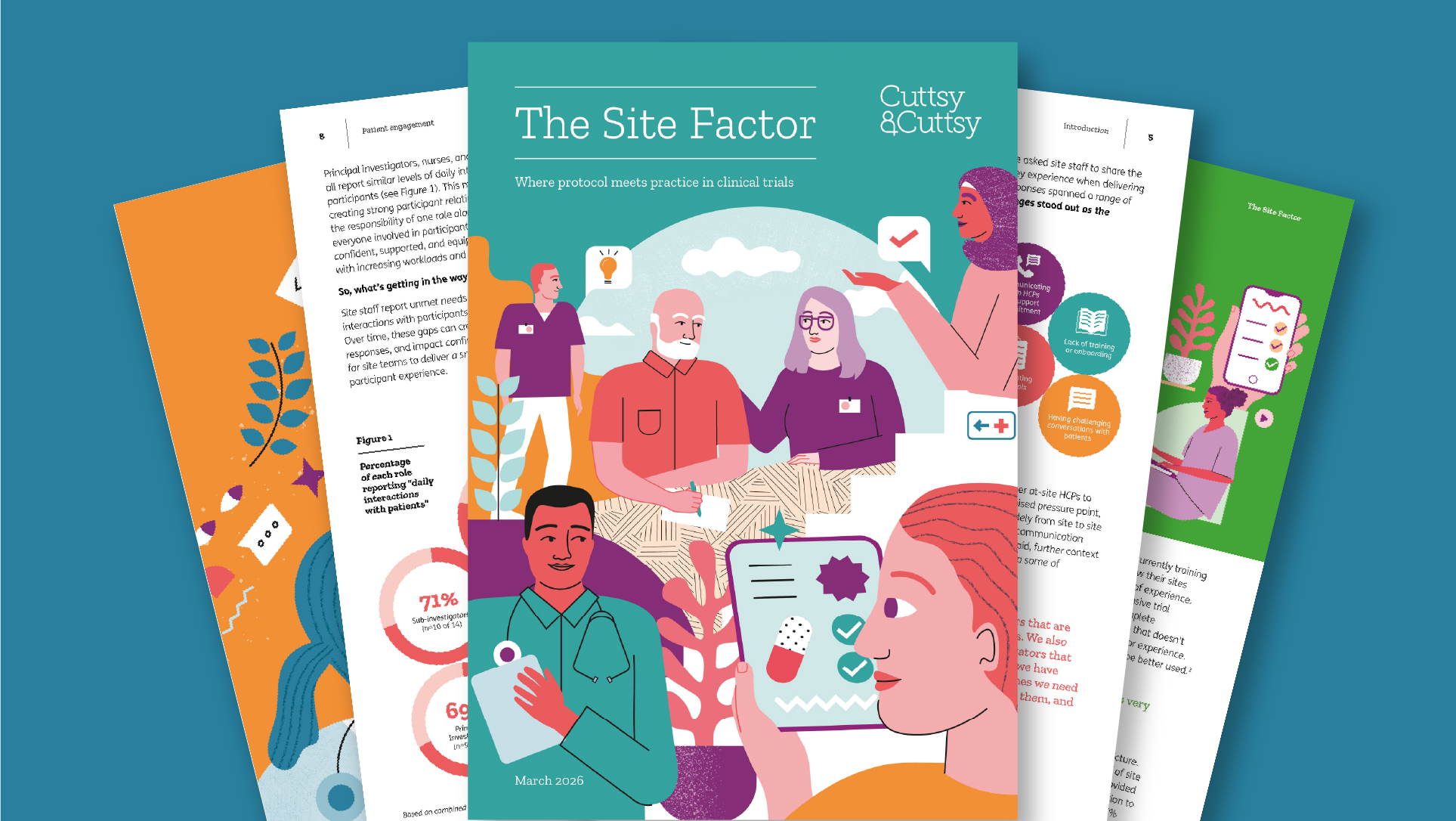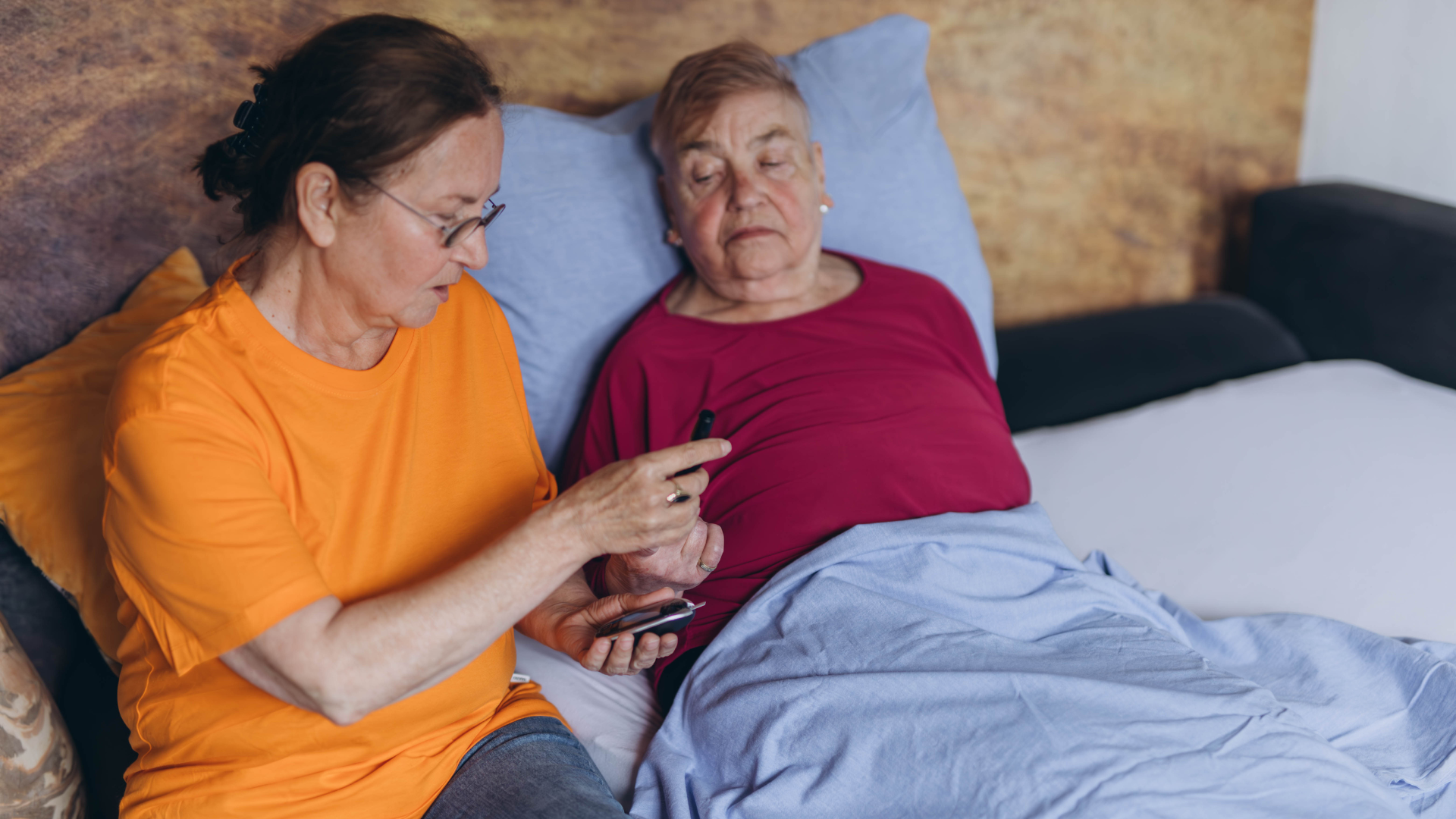Unspoken burdens: The mental and emotional toll of underreported side effects

Our first blog in this series highlighted how empathy can illuminate the lived impact of side effects. Yet many experiences remain unspoken, quietly set aside by patients or unknowingly overlooked within structured reporting frameworks. Lower grade but persistent symptoms are often underreported, masking not only the daily disruption they cause but also their cumulative emotional toll – from fatigue and frustration to disengagement. Recognising this silence is the first step toward change, strengthening support, enriching safety data and enhancing trial integrity.
The emotional toll of the unspoken
The emotional toll of trial participation is often under-recognised and may be exacerbated by adverse events. In oncology studies, symptomatic adverse reactions such as fatigue, nausea, and diarrhoea are among the most frequently reported side effects and are strongly associated with emotional distress. Similar patterns are seen in non-oncology contexts, particularly in obesity pharmacotherapy, where the greater symptom burden from gastrointestinal events has been linked with poorer quality of life.
While physical safety signals such as lab values and imaging are rigorously captured, subjective effects like stress, mood changes, or social withdrawal are classified as soft endpoints. This can result in the broader emotional consequences of treatment side effects being overlooked in standard toxicity and adverse event reporting. Furthermore, emotional discomfort is often downplayed by participants, highlighting concerns that they’ll appear overly sensitive or waste clinician time. Online forums, however, reveal candid tones of fear, sadness, and uncertainty. Which highlights some key considerations - is there a need for prioritisation of emotional monitoring as well as professional support to protect participants from misinformation and worsening side effects?
Implications for adherence and data quality
When side effects go unreported, safety data can be incomplete and opportunities to support participants missed. Subjective effects such as fatigue, mood changes, or anxiety are less consistently captured, often falling outside standard frameworks. Patient-reported outcomes (PROs) highlight how these effects are under-documented broadly across therapeutic areas, creating blind spots in the safety profile.
Untreated distress in oncology trials is significantly associated with an increase in discontinuation rates and lower adherence to trial protocols. While in weight-loss trials, higher baseline depression predicts early discontinuation. If depressive symptoms remain unaddressed, participants may skip doses or disengage, affecting both their wellbeing and trial outcomes. Encouragingly though, research also shows that proactive acknowledgement of these challenges strengthens adherence, protects data quality, and builds trust.
Closing the gap is achievable. By systematically capturing emotional as well as physical impacts, sponsors not only safeguard participants but also enhance trial validity. Improving this balance reduces blind spots in data, ensures psychological adverse events are recognised, and reinforces the scientific and ethical integrity of trials.
From silence to support
Our first blog revealed how empathy opens a window into the lived experience of trial participants. This second piece highlights the silence that often surrounds side effects, particularly the emotional ones that should not be overlooked.
Research consistently shows that many participants experience elevated levels of stress and anxiety when participating in clinical trials. It is therefore plausible that treatment side effects compound this vulnerability, even if not always captured in standard reporting. When such silence is recognised and addressed, trials have the potential to become stronger, more personalised, and more rigorous.
In our third and final article, we will explore how with the right education, supportive mechanisms, and trusted relationships in place, the emotional burden often associated with uncertainty in clinical trials can be reduced, providing participants with greater confidence and peace of mind.
Further reading
Barrientos-Ávalos J, et al. Revista de Gastroenterología de México 2024;89:521–32.
Brown L, Kroenke K. Psychosomatics 2009 Sep-Oct;50(5):440–7.
Chichua M, et al. PLOS One.2023;18:e0284268.
Clinical Trials For All (2025). 14 ways to support your mental health during a clinical trial. Available here. Accessed: September 2025.
Diabetes.co.uk (2023). Anyone on the Ascend Plus trial? Available here. Accessed: September 2025.
Horodniceanu E, et al. Value in Health 2025;28(1);108–15.
Katta B, et al. Cureus 2023;15(4):e38301.
mdgroup (2020). The importance of looking after a patient’s mental health during clinical trials. Available here. Accessed: September 2025.
Naidoo N, et al. BMC Med. 2020:18;6.
Narra L, et al. Seminars in Radiation Oncology 2023;33,4:358–66.
Papaioannou D, et al. BMJ 2024;387:e077418.
Shi L, et al. BMC Med 2025;23:293.
Somerset S, et al. Clinical Nutrition. 2011;30,5:593–8.
Wharton S, et al. Int J Obesity 2021;45:923–33.
Wilding J, et al. New Eng J Med 2021;384:989–1002.












